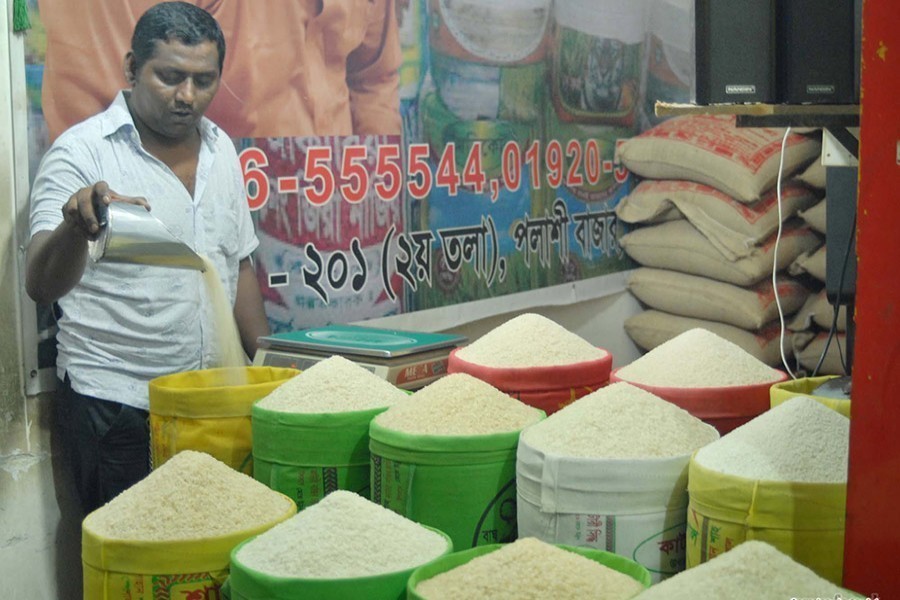The prices of staple rice and that of edible oil, a key cooking ingredient, remained high last week, depriving the consumers, especially the commoners, of breathing space as they had already dug deep into their pockets to meet the rising cost of living.
However, prices of onion, a key kitchen item, declined further last week amid a notable increase in the supply of early harvested crops, traders said.
The early harvested onion, known as Murikata, was retailed at Tk 30-45 a kilogram (kg) on Friday-- Tk 5.0-10 per kg decline in a week.
Imported varieties of onion were sold at Tk 25-30 a kg-a Tk 5.0 per kg plunge, according to the market sources.
The state-owned Trading Corporation of Bangladesh (TCB) recorded 10-11 per cent declined in onion prices in a week and 37 per cent in a month.
Rafiqul Islam, a spice wholesaler at Sadeq Khan Agricultural Market in the city's Rayerbajar-Beribadh area, said prices have been declining as supply of Murikata variety has increased considerably in the last few days from greater Faridpur region and Pabna, Kushtia and Jashore districts.
He also said that the withdrawal of export ban by India has also impacted the local market positively.
He mentioned that farm-level prices of Murikata dropped to Tk 21-24 a kg last week from Tk 30-35 one and a half weeks back.
The wholesale prices in Shyambazar, Karwan Bazar and Beribadh areas were Tk 26-32 a kg based on quality on Friday.
However, the government on Thursday imposed 10 per cent import duty on onion to protect local farmers, according to the National Board of Revenue (NBR).
Officials of the Department of Agricultural Extension (DAE) said higher prices of the crop have encouraged hundreds of local farmers to grow onions this season.
The DAE has targeted to produce 2.9 million tonnes of onion this season on 0.259 million hectares of land.
Meanwhile, rice prices remained at their previous high on Friday.
Coarse varieties of rice were retailed at Tk 50-53, medium at Tk 55-60 while the common finer varieties at Tk 65-72 a kg in the capital.
The government recently reduced the rice import duty to 25 per cent from 62.5 per cent. It also approved 0.35 million metric tonnes of rice import through private sector until January 6, according to sources.
Now, the private sector might be allowed to import a total of 1.0 million tonnes of rice, according to the food ministry.
The government itself also might import another 1.0 million tonnes of rice due to a possible fall in Aman production.
However, allowing the private sector to import rice has not yet impacted the local market positively as the staple was selling at a high price till yesterday, according to traders.
They said the import could hardly help reducing the coarse rice price for now.
The current price of the coarse variety is 46 per cent higher than that at the same period of 2020, according to the TCB.
Edible oil prices remained also high last week as it was earlier. The maximum price of soybean oil was Tk130 per one-litre jar.
Loose soybean oil was retailed ar Tk 110-116 a litre on Friday.
A five-litre jar of soybean oil was Tk 570-600 on the day. Super palm oil was sold at Tk 103-106 a litre.
Current edible oil prices are 14-27 per cent higher than that in 2020.


